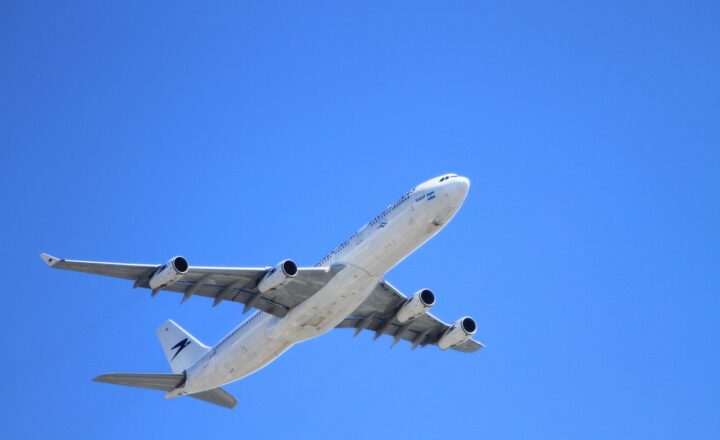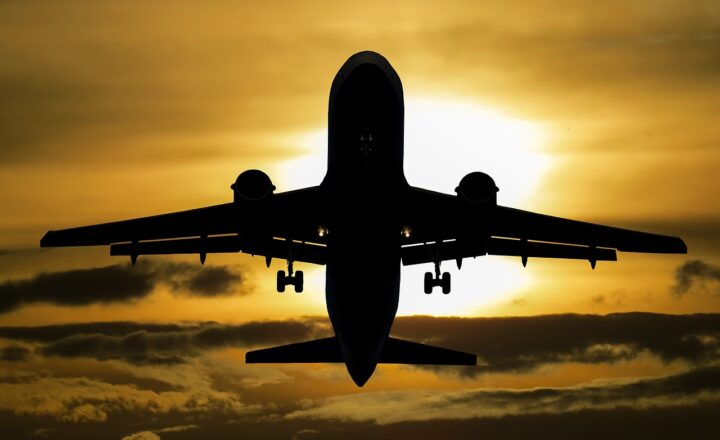Beyond the Horizon: The Future of Air Travel and What It Means for You
November 18, 2024

Air travel has long been synonymous with adventure, innovation, and sometimes frustration. From cramped seats and delayed flights to rapid advancements in technology and sustainability, the aviation industry is undergoing significant changes that could redefine how we experience the skies in the coming decades. In this article, we will explore what the future holds for air travel and what these developments mean for you as a traveler.
1. The Rise of Sustainable Aviation
In recent years, the push for sustainability has seeped into every industry, and aviation is no exception. Environmental concerns surrounding air travel have led to the exploration of sustainable practices that aim to mitigate the impact of flying on our planet.
– **Sustainable Aviation Fuels (SAF):** One of the most promising developments is the implementation of SAF, which significantly reduces carbon emissions compared to traditional jet fuels. Airlines are increasingly investing in research and partnerships to produce and use SAF, making air travel greener and more responsible.
– **Electric and Hybrid Aircraft:** Companies like Boeing and Airbus are investing in electric and hybrid planes designed for shorter flights. These aircraft promise to lessen fuel consumption and lower operational costs. As technology advances, we might soon see electric jets operating regional and short-haul routes, making a significant dent in aviation emissions.
– **Reducing Weight:** Innovations in materials are leading to lighter aircraft without compromising safety. Manufacturers are focusing on using composites and advanced alloys that reduce weight and enhance fuel efficiency.
As travelers, we can look forward to a future where flying becomes increasingly eco-friendly, aligning with global sustainability goals.
2. The Impact of Technology on Air Travel
Technology is transforming air travel in ways once thought to be the realm of science fiction. Here are some notable advancements:
– **AI and Enhanced Customer Experience:** Airlines are leveraging artificial intelligence to improve customer experience. From intelligent chatbots that assist with booking to personalized in-flight services, technology is enhancing ease of travel and optimizing flight operations. AI systems can also predict maintenance needs, ensuring that aircraft are always in optimal flying condition.
– **Biometric Boarding:** Long queues at boarding gates may soon be a thing of the past, with biometric scanning set to become the norm. Facial recognition and fingerprint scanning technologies promise to streamline the boarding process, making your journey smoother.
– **In-flight Connectivity:** Expect your in-flight experience to resemble that of your home or office more closely. With expanding high-speed internet access on planes, travelers can remain connected, enhancing productivity and entertainment options during flights. Streaming movies or video conferencing while airborne may soon be standard.
These innovations not only promise to enhance convenience but aim to make air travel much more enjoyable.
3. The Future of Airports: Efficiency and Flexibility
Airports are evolving to accommodate the growing number of travelers and the demands of modern air travel. Here’s what you can expect:
– **Smart Airports:** Technology-driven airports are emerging, integrating AI, IoT, and data analytics into operations. This allows airports to optimize passenger flow, predict peak times, and enhance security protocols, reducing wait times and increasing traveler satisfaction.
– **Flexible Design:** New airport designs prioritize flexibility to accommodate larger aircraft and increased traffic. Modular terminal designs and strong emphasis on sustainability are becoming standard practice as new terminals are built around the world.
– **Contactless Procedures:** With health and safety at the forefront of travelers’ minds, procedures such as touchless check-in, baggage handling, and security screenings are being implemented. This minimizes physical contact and enhances overall safety, making the travel experience smoother and more secure.
These advancements mean that airports will not only be more efficient but also positioned to provide travelers with a more seamless experience.
4. The Evolution of Travel Experiences
The future of air travel also entails a notable shift in the type of experiences offered to travelers:
– **Enhanced In-flight Experiences:** Expect airlines to offer a more luxurious in-flight experience. Innovations such as mood lighting, personalized entertainment options, and gourmet meals designed by top chefs are becoming more common. Premium services, including access to spacious and private cabins, will also cater to affluent travelers seeking comfort and exclusivity.
– **Partnerships with Travel Startups:** Airlines are partnering with travel tech startups to enhance customer experiences. This includes offering smarter travel itineraries through interconnected travel solutions or optimizing travel plans through real-time notifications and updates.
– **Virtual Reality Travel Planning:** The advent of virtual reality may revolutionize how we plan our trips. Travelers might experience virtual walkthroughs of destinations or even previews of in-flight experiences before making reservations.
This future emphasizes an evolved travel experience that prioritizes comfort, personalization, and technology.
5. Preparing for the Future of Air Travel
With all these changes on the horizon, what can you do as a traveler to prepare?
– **Stay Informed:** Keep yourself updated on the latest advancements in air travel to understand what to expect during your journey. Follow travel blogs and websites that focus on industry trends.
– **Embrace New Technologies:** Get comfortable with emerging technologies in travel, such as mobile boarding passes, biometric data, and mandatory health checks. Familiarity will help smoothen your travel experience.
– **Promote Sustainable Practices:** As a traveler, you can choose airlines that implement sustainable practices. Opting for flights with lower carbon emissions or participating in carbon offset programs can help mitigate your travel impact.
Being proactive about these upcoming trends can help you enjoy a smoother and more enjoyable journey.
Conclusion
The future of air travel holds exciting potential, integrating sustainability, technology, and customer experience enhancements. As these innovations unfold, air travel will likely become more efficient, enjoyable, and environmentally friendly. Travelers can embrace these changes, ensuring that flying remains an essential part of our global connectivity.







